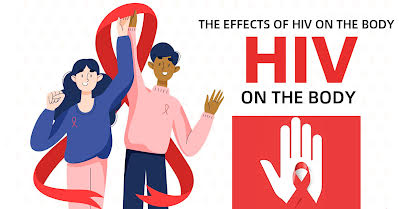1.Why is this medication prescribed?
• Truvada is one of several medications that are currently used to treat human immunodeficiency virus (HIV) and hepatitis B virus infection.
• Truvada is now being used to prevent HIV infection.
• Truvada is sometimes prescribed to some people who do not have HIV infection (for example, those who do not always use condoms or who have a sex partner that has HIV infection) to help reduce their chances of getting HIV infection
• When you take Truvada to prevent HIV infection, doctors refer to this use as “pre-exposure prophylaxis” or “PrEP”.
2.How does Truvada (PrEP) help prevent HIV infection?
• HIV is a virus that attacks your body’s immune cells (the cells that work to fight infections).
• The 2 medications that make up Truvada (tenofovir and emtricitabine) block important pathways that viruses use to set up infection.
• If you take Truvada as PrEP daily, the presence of the medication in your bloodstream can sometimes stop the virus from establishing itself and slow the spread of HIV in your body.
• By itself, PrEP with Truvada does not work all the time so youshould also use condoms during sex for the most protection from HIV infection.
3.How should this medicine be used?
• You must take one tablet of Truvada by mouth every day .
• Follow the directions on your prescription label carefully, and ask your doctor or pharmacist to explain any part you do not understand.
• Do not stop taking Truvada without talking to your doctor. When your supply of Truvada starts to run low,
contact your doctor or pharmacist to get more.
• You may be at higher risk of becoming infected with HIV if you miss doses or stop taking Truvada than if you take it every day.
4.What special precautions should I follow?
Before taking Truvada (tenofovir and emtricitabine) you must do the following:
• Tell your doctor and pharmacist if you are allergic to tenofovir, emtricitabine, or any other medications.
• Tell your doctor and pharmacist about all prescription and nonprescription medications, (vitamins, nutritional
supplements, and herbal products) you are taking. Your doctor may need to change the doses of your medications or monitor you carefully for side effects.
• Tell your doctor if you have or have ever had kidney or liver disease.
• Tell your doctor if you become pregnant or if you are breastfeeding
5.What special dietary instructions should I follow?
• Continue your normal diet unless your doctor tells you otherwise.
6.What should I do if I forget a dose?
• Take the missed dose as soon as you remember it. However, if it is almost time for the next dose, skip the missed dose and continue your regular dosing schedule.
• Do not take a double dose to make up for a missed one.
7.What side effects can this medication cause?
You may experience the following side effects while taking Truvada:
• upset stomach
• headache
• vomiting
• loss of appetite
These side effects usually fade during the first month of taking Truvada for PrEP. Tell your doctor if any of these symptoms are severe or do not go away.
Truvada may cause other side effects. Some side effects can be serious. Call your doctor immediately if you have any unusual problems while taking this medication or if you have any of the following:
• Fever or chills especially with sore throat, cough, rash or other signs of infection
If you experience a serious side effect, you or your doctor may send a report to the Food and Drug Administration’s
(FDA) MedWatch Adverse Event Reporting program online (at http://www.fda.gov/Safety/MedWatch) or by phone (1-800-332-1088).
8.How should I store Truvada in my home?
• You should keep Truvada in the container it came in, tightly closed, and out of reach of children.
• You must store it at room temperature and away from excessive heat and moisture.
• Throw away any medication that is outdated or no longer needed. Talk to your pharmacist about the proper
disposal of your medication.
9.What should I do in case of emergency/overdose?
• In case of overdose, call your local poison control center at 1-800-222-1222. If the person has collapsed or is not breathing, call local emergency services at 911.
10.What other information should I know?
• Do not let anyone else take your medication.
• Ask your pharmacist if you have any questions about refilling your prescription.
• Write a list of all of your prescription and over-the-counter medicines, as well as any vitamins, minerals, or other dietary supplements that you take.
• Bring your medication list with you each time you visit a doctor or if you are admitted to a hospital. Keep it with you always in case of emergencies.

